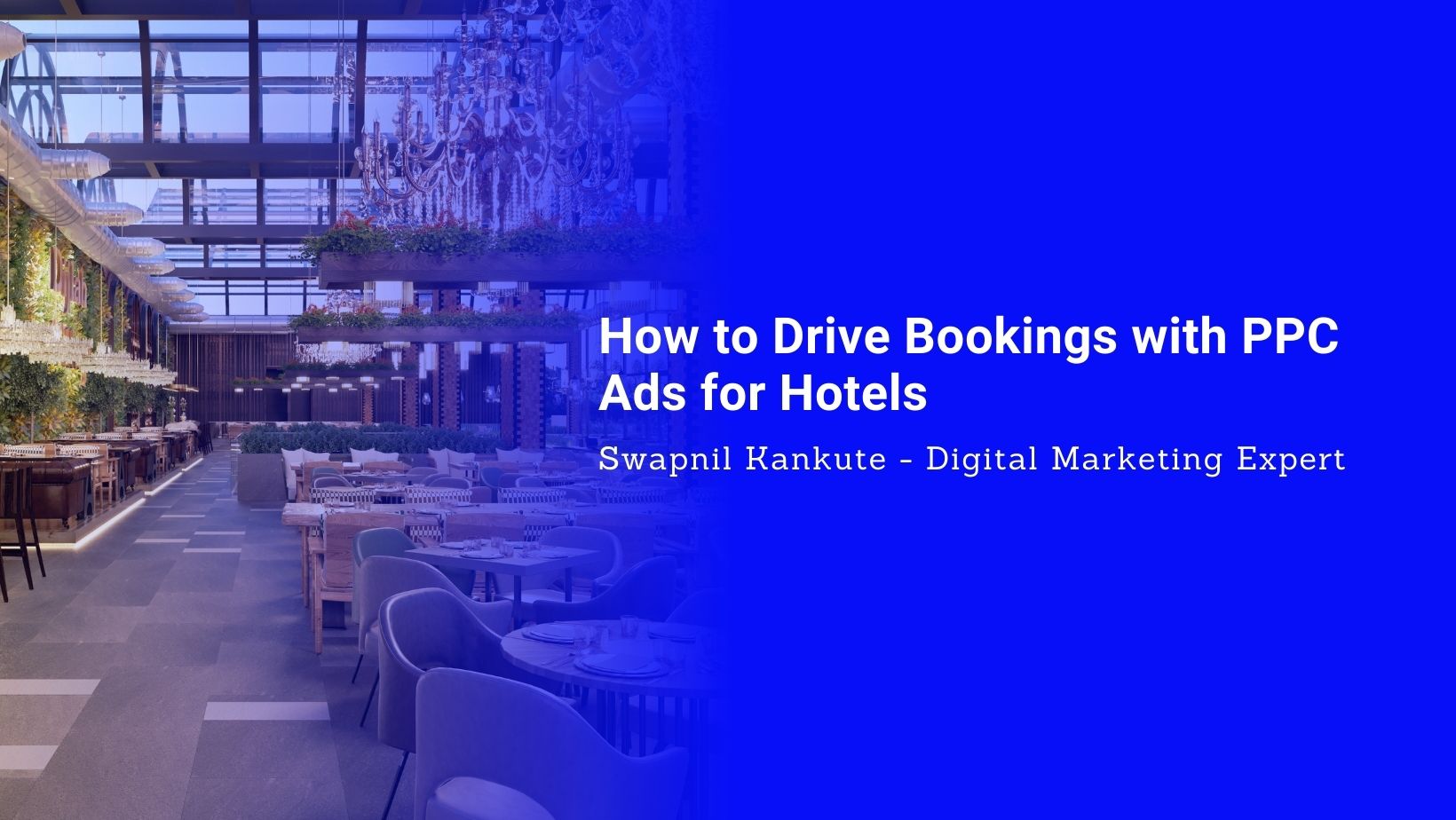In an increasingly competitive hospitality market, hotels must adopt effective marketing strategies to stand out. Pay-Per-Click (PPC) advertising is one such strategy that can significantly enhance visibility and drive bookings. In this blog, we will explore how hotels can effectively use PPC ads to attract guests and increase bookings.
Table of Contents
ToggleWhat is PPC Advertising?
PPC advertising is an online marketing model where advertisers pay a fee each time their ad is clicked. It allows businesses to place ads on search engines, social media platforms, and other websites, effectively targeting potential customers actively searching for relevant services. For hotels, PPC can be an invaluable tool to reach travelers at the right time and place.
Why Use PPC Ads for Hotels?
- Immediate Visibility: Unlike organic search results that take time to build, PPC ads appear at the top of search engine results, giving your hotel immediate visibility.
- Targeted Marketing: PPC allows hotels to target specific demographics, locations, and behaviors, ensuring ads reach the right audience.
- Cost Control: With PPC, you control your budget, only paying for clicks that lead potential guests to your website.
- Measurable Results: PPC campaigns provide detailed analytics, allowing hotels to track performance and optimize campaigns for better results.
Steps to Drive Bookings with PPC Ads
1. Define Your Goals
Before launching a PPC campaign, it’s essential to establish clear goals. Common goals for hotel PPC campaigns include:
- Increasing direct bookings
- Promoting special offers or packages
- Raising brand awareness
- Generating leads for future marketing efforts
2. Identify Your Target Audience
Understanding your target audience is crucial for creating effective PPC ads. Consider factors such as:
- Demographics: Age, gender, income level, and interests.
- Travel Preferences: Business vs. leisure travelers, family vacations, or romantic getaways.
- Geographic Location: Focus on travelers from specific regions or cities that are likely to visit your hotel.
3. Choose the Right PPC Platform
Several platforms can be used for PPC advertising, each with its unique advantages. Consider the following:
- Google Ads: Ideal for reaching users actively searching for hotels. Google Ads allows you to target keywords related to your hotel and location.
- Facebook Ads: Great for visual storytelling and targeting specific demographics. Use Facebook to showcase your hotel’s amenities, photos, and offers.
- Instagram Ads: Perfect for visually appealing content. Instagram ads can help highlight the beauty and uniqueness of your hotel.
4. Conduct Keyword Research
Keyword research is essential for creating effective PPC campaigns. Use tools like Google Keyword Planner to identify relevant keywords that potential guests might use. Focus on:
- Location-Based Keywords: Include your hotel’s location in your keywords (e.g., “hotels in [City]”).
- Long-Tail Keywords: Target specific phrases that indicate a high intent to book (e.g., “luxury hotels with pools in [City]”).
- Competitor Keywords: Analyze the keywords your competitors are targeting to identify gaps in your strategy.
5. Create Compelling Ad Copy
Your ad copy should be engaging and persuasive to encourage clicks. Keep these tips in mind:
- Use Clear Headlines: Grab attention with concise and relevant headlines that highlight your unique selling points.
- Highlight Offers: If you have special promotions or packages, make sure to include them in your ad copy.
- Incorporate Calls to Action (CTAs): Encourage potential guests to take action, such as “Book Now,” “Check Availability,” or “Get Your Discount.”
6. Optimize Landing Pages
The landing page where users arrive after clicking your ad is crucial for conversion. Ensure your landing page:
- Matches Your Ad: The content and offer on the landing page should align with what the ad promised.
- Is Mobile-Friendly: Ensure your landing page is optimized for mobile users, as many travelers book accommodations on their smartphones.
- Includes Booking Options: Make it easy for visitors to book directly from the landing page by providing a clear booking form or link.
7. Monitor and Optimize Your Campaigns
Once your PPC campaigns are live, regularly monitor their performance. Track key metrics, including:
- Click-Through Rate (CTR): The percentage of people who clicked on your ad after seeing it. A higher CTR indicates engaging ad copy.
- Conversion Rate: The percentage of visitors who completed a booking after clicking your ad. This metric reflects the effectiveness of your landing page.
- Cost-Per-Acquisition (CPA): The average cost of acquiring a booking through your PPC ads. Aim to keep your CPA below the average revenue generated from each booking.
Based on these metrics, make data-driven decisions to optimize your campaigns. Adjust your ad copy, targeting, or budget as needed to improve results.
8. Retargeting Strategies
Retargeting allows you to reach users who previously visited your website but didn’t complete a booking. Use retargeting ads to remind these potential guests about your hotel, offering incentives such as discounts or special packages to encourage them to return.
Conclusion
PPC advertising can be a game-changer for hotels looking to drive bookings and increase revenue. By defining your goals, identifying your target audience, conducting keyword research, and optimizing your campaigns, you can leverage PPC to attract more guests and enhance your hotel’s visibility in a competitive market.
As a certified digital marketing expert with over 12 years of experience, I encourage hotels to embrace PPC advertising as a vital component of their marketing strategy. With the right approach, PPC can lead to increased bookings and long-term success in the hospitality industry.



